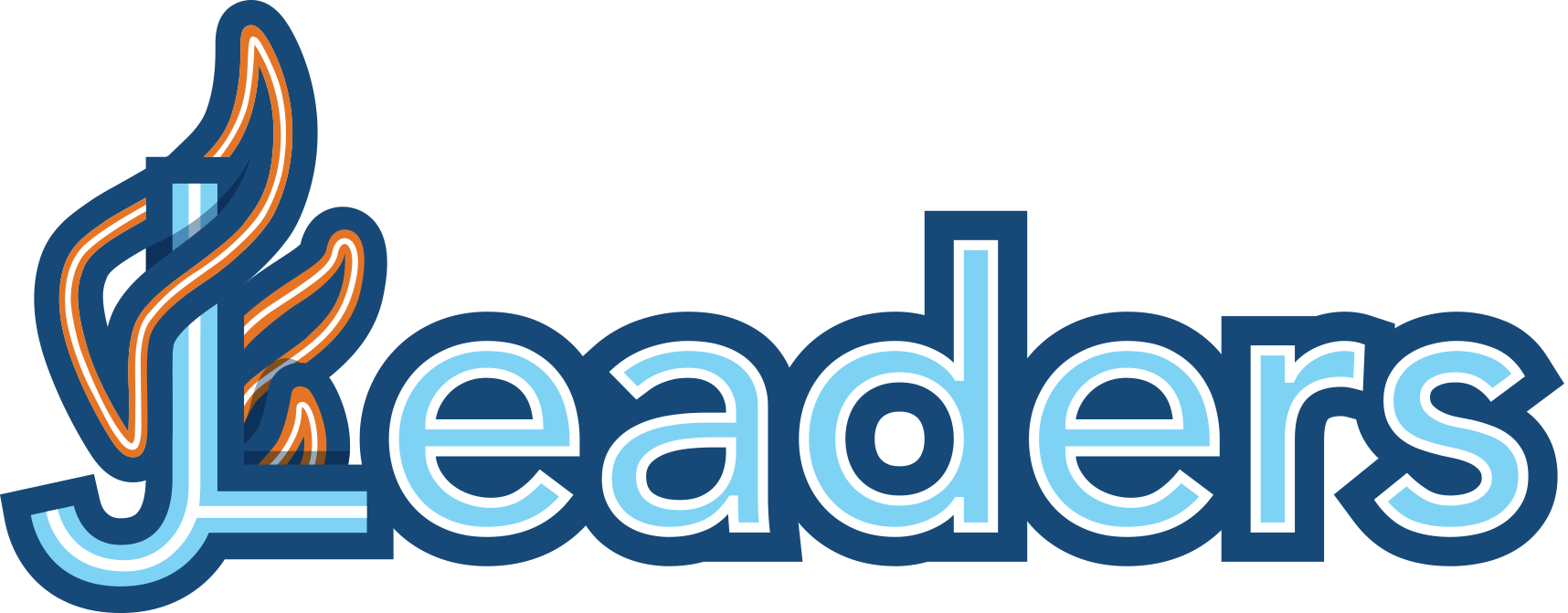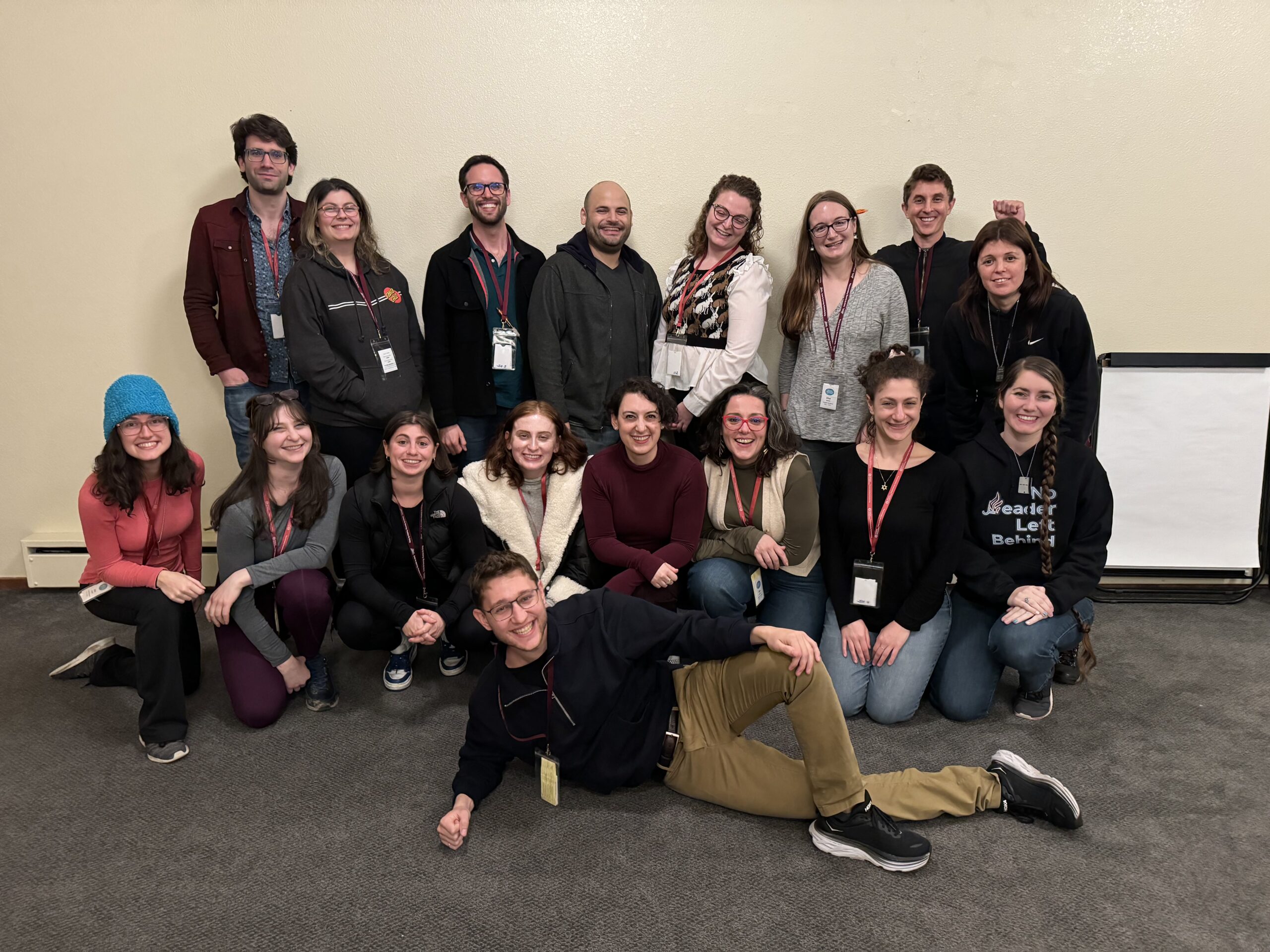6 Lessons in Leading with Your Values from Noah’s Bagels’ Founder Noah Alper
By Victoria (Tori) Lyon, ’23-’24 J Leaders Academy Fellow
One Jewish value that was instilled in me as a kid is Tikkun Olam – Repairing the World. However, as a twenty-something who was eager to become financially self-reliant, finding a job that embodied Tikkun Olam was challenging.
In my professional career so far, I’ve held roles in organizations whose missions have deeply aligned with my values. However, I have experienced personal limitations in these roles, such as meager salaries and limited growth trajectories. While on the surface I was helping to make the world a better place, I did not feel that my day-to-day life of administrative tasks and attending Zoom was leading to any meaningful contribution to society.
I signed up for the J Leaders Academy for the safe space to design my life in line with my values. J Leaders has not disappointed!
The J Leaders fellows recently met Noah Alper, a serial entrepreneur from the Bay Area who is most well known for founding Noah’s NY Bagels in 1989, which successfully sold to Einstein Bagels in 1996 for $100 million. Noah’s other ventures include Bread and Circus, Kosher Italian restaurant Ristorante Raphael, gourmet housewares business Alper International, and Holy Land Gifts. He is also the founding President of Jewish Community High School of the Bay, and author of Business Mensch, timeless wisdom for today’s entrepreneur. Today, Noah advises entrepreneurs through Noah Alper Consulting.
Noah spoke to my J Leaders Academy cohort on “Leading with your Jewish Values”, which is something he embodied through all his business ventures.
Here are the top 6 lessons I’ve taken away from Noah’s conversation with our cohort.
1. Business can be done mindfully to benefit the community, no matter how small the business.
Noah spoke about an impactful moment at the beginning of his entrepreneurial journey. He sold beautiful wooden bowls at the front entrance to his brother-in-law’s store. When Noah offered to pay rent, his brother-in-law asked him to donate the funds to charity instead. In this story, Noah’s brother-in-law practiced the Jewish values of Pe’ah, Lovingkindness, and Tzedakah by giving Noah the opportunity to start his own business and recommending to send any rent payments to charity.
2. It is possible to create an “unapologetically Jewish” brand that serves the general public.
At first, it may seem risky to create a Jewish values-based business for fear of alienating non-Jews. However, there are brands such as Chick-fil-A that clearly state their Christian values on the “Mission” section of their website, and many customers respect values-forward companies, as long as they conform to universal standards of business conduct.
Noah leaned into the Jewish cultural associations with New York bagels by making choices that proudly show Jewish roots. For example, in the winter, he displayed Hanukkah decor instead of Christmas.
3. The importance of humility — Anavah — in building a strong team.
“Know what you don’t know,” Noah said. When building a team, Noah surrounds himself with smart mensches. He uses an informal “airplane test” interview to assess the candidate’s true character in stressful or challenging situations.
It is key to work with people we trust and respect. It’s also on leaders to recognize when their team members’ skills and expertise surpass our own.
4. Freedom of choice — Bechira — is a fundamental Jewish belief.
One challenge that Noah faced when leading with Jewish values was implementing inclusive systems. For example, he introduced a policy to allow religious Jews to keep Shabbat, by hiring only non-Jewish workers on Saturdays. But, he faced pushback from secular Jewish employees who wanted to work on Shabbat! He eventually abandoned the mandate, but kept the policy for those for whom it was important. My takeaways from this story were two-fold.
For business owners, recognize that a policy will not please everyone. Instead, business owners should strive to implement systems for employees to work directly with their managers to try to come to agreements so that an employee can observe their faith — or honor any other commitment in their life — while also maintaining their work commitments.
For employees, make conscious choices for how to live in accordance with beliefs and values. There are many ways to practice Judaism, and an employer may be happy to work with employees on how to embody your Jewish identity. Who knows? A manager or someone in HR might be like Noah — eager to help employees feel safe in expressing their religious and cultural identities in a respectful way at work!
5. There are many ways to live an embodied Jewish life.
Not everyone is intended to be an entrepreneur like Noah. A person can choose to prioritize building a Jewish family and having kids and live an equally fulfilling and purpose-filled life. After all, “Be Fruitful and Multiply” is a commandment!
6. “Schmoozing” is a Jewish value.
Schmoozing, which is defined as “a warm conversation, to shoot the breeze, to pass the time chatting”. Noah talked about how important schmoozing is to maintaining good relationships in his network. One never knows when an acquaintance may become more important in one’s life. It’s similar to the concept of “power of weak ties” — Second and third degree connections are often how individuals network their way to new jobs.
Maintaining a network of people one genuinely cares about can lead to more than a job. Noah gave several examples of individuals who were customers of his first business, who later became business partners and clients in other ventures.
J Leaders — The Power of Intentional Jewish Community
I see J Leaders as a purposeful community of mensches. We came together to schmooze at in-person retreats, connect on a personal level, explore our religion and culture together, and apply its wisdom to our lives. Being in a community of others who want to show up as their best Jewish selves is fulfilling in itself.
Jewish philosopher Abraham Joshua Heschel coined the term “awe and wonder,” moments when God suddenly seems close. Being part of the J Leaders community may lead to such moments of awe and wonder, far beyond the duration of the Academy.
See how our J Leaders Academy develops Jewish young adult leaders.
Victoria Lyon is a spiritual health and wellness educator and movement coach through her brand Sweat Shalom, based in Austin, Texas. She previously worked as a project manager at several health-tech startups, and as a public health research scientist at the University of Washington, in Seattle. She has a Master’s degree in Public Health from Washington University in St. Louis, a Bachelor’s degree in Leadership Studies from the University of Richmond, and completed the Embodied Jewish Wisdom Teacher Training in Berkeley, CA.

